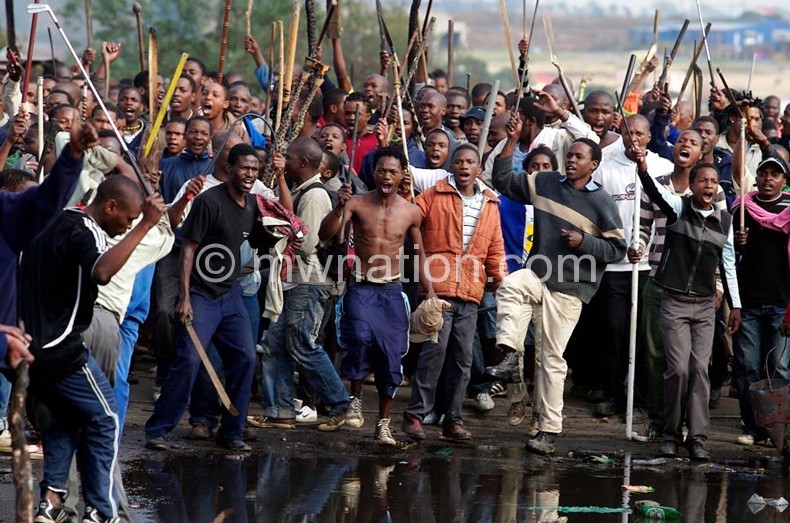A question that remains to be addressed honestly and sincerely in the aftermath of Afrophobia (commonly referred to as Xenophobia) expressions in South Africa is this: what causes people to migrate from their countries into others? Without doubt, this is a complex question but it does one thing successfully — it causes us to introspect about our own local conditions.
I have been moved by the deaths of young Malawians and other Africans during the recent spat of violence in South Africa. African youth, from Port Elizabeth to Algiers, are bearing the brunt of post-colonial states that have failed to radically transform and decisively alter the future of their citizens. It is a serious indictment on the type of governance systems we inherited, have perpetuated and perfected in their conspiracy against tangible development. At that precise moment of raising the Independence flag, Africa did something terribly wrong — it normalised the abnormalities of colonial rule.

With successive governments continuing on this trajectory, not least the Malawian government, we have an immense responsibility to reimagine our future. And this responsibility rests in no other peoples than the youths, the people to whom the future belong. We repeatedly do ourselves no favours if we cannot entrust the destinies of our countries in the hands of children and the youth.
In Johannesburg, South Africa where I have lived since 2010, I regularly encounter many young Malawians. Many are in the factories, doing menial jobs and others are in the hospitality industry. Most employers will be quick to tell you how hardworking and polite Malawian staff are. Still, many other are at Lindela Repatriation Camp, awaiting deportation back to Malawi because they do not possess the necessary documentation.
Although we have succeeded in repatriating many affected Malawians this time, it remains to be seen how long it will take before they start considering going back to South Africa again. The painful truth is that there are not many opportunities for youths in Malawi, whether in education, employment or entrepreneurship.
Hence, beyond the repatriation, the shame of returning home empty-handed and the harsh realities faced by Malawian youths who might have thought of exiting the country but did not, we need a serious national dialogue on shaping this country’s future, which lies in the hands of young people.
Our collective youthful energy can be marsh-alled towards social and economic develop-ment as opposed to it being always abused during elections, with young people acquiescing themselves to domination and dehumanisation as they clumsily paint themselves pink, brown, orange, purple, yellow or blue. There is more to being a youth than reducing oneself to a political agent of terror and violence.
Those of us in exile, having been pushed out of Malawi because of various factors, have to become more honest with ourselves. Can the massive cocktail of youth and ability that we possess be directed at building Malawi as opposed to seeking refuge in Australia, Great Britain or South Africa? Do we imagine a return to the Homeland at some point?
The most painful thing about Malawian migrant labour over many years is to see the transformative contribution it has made to the growth and development of other countries where it has been available. This is potential that has been lost, and we continue to lose it when it is needed most. How can we keep it inside the country and use it productively?
It is not a question that will be answered overnight. If that were the case, then we could not have been confronted with exactly the same situation we were confronted with in 2008, when Afrophobic violence exploded in South Africa. Our own dire situation — signified by massive corruption and narrow self-interest in face of mass poverty and death — is testimony enough of the systematic failure in governance by successive regimes since Independence.
What we need, therefore, is sincere leadership that can imagine beyond the electoral cycles and begin to see the need for substantial and radical alteration of our development trajectory. For this to be successful, it requires both clarity of vision and unshakable courage. There is no other constituency that possesses these critical ingredients in abundance than the youth of Malawi. And their time is now.
Levi Kabwato is social and political commentator based in Johannesburg, South Africa. Contact: kabwato@gmail.com





